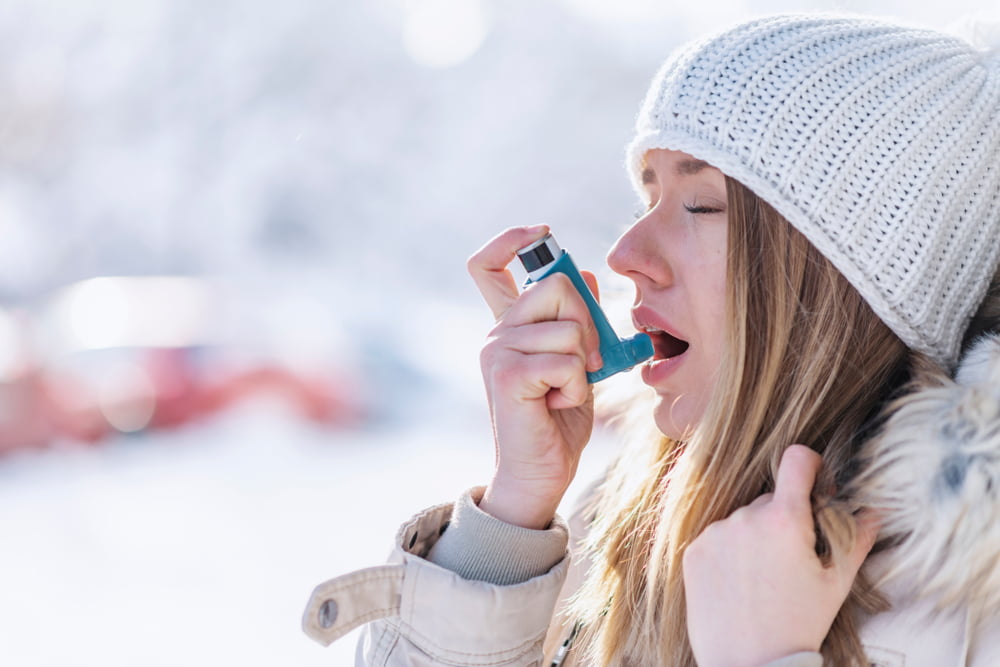
For people with asthma, exposure to cold weather is a leading cause of health issues. Identifying exactly why a drop in temperature causes problems is necessary to deliver effective and targeted asthma treatment. With potentially several factors being responsible for triggering asthma symptoms, getting some clarity is an important step towards a better quality of life.
The Primary Causes of Asthma Issues During Cold Weather
Of course, the colder winter weather brings about environmental changes, and also leads to behavioral adjustments. One or more of the following factors could be to blame for a deterioration in your health.
Breathing Cold Air
Breathing cold air can cause the airways to constrict. This response is called bronchoconstriction, and it occurs as the body attempts to prevent cold air from entering the lungs. Because the lungs operate most efficiently at body temperature, constricting the bronchial tubes helps warm the air as it passes through the airways. Unfortunately, for a person with asthma, bronchoconstriction can be more pronounced and will make breathing more difficult.
Breathing Dry Air
The dry air found in colder temperatures is also an issue for people with asthma, as it lacks the moisture required by the airways. Without adequate moisture the body produces thickened mucus – one of the common causes of asthma attacks. In addition, dry air can irritate the lining of the airways, causing inflammation and tightening that impacts breathing.
Higher Risk of Cold and Flu
Upper respiratory infections are more prevalent during cold weather, and their symptoms often exacerbate asthma. A viral or bacterial infection can result in the body producing more mucus to deal with inflammation. This mucus obstructs the airways, however, and those with asthma can find it difficult to breathe freely.
Exercising in Colder Conditions
While regular exercise is an essential part of staying healthy and managing asthma, the risk of exercise-induced bronchoconstriction can come with it. Exercising in cold, dry conditions is a common trigger of this condition, resulting in chest tightness, shortness of breath, wheezing and coughing. To prevent asthma attacks during exercise, try working out indoors until the temperatures start to rise.
Exposure to Indoor Allergens
From dust mites and mold to pet dander and cockroaches, most homes contain an array of allergy triggers. For a person with asthma, exposure to allergens can result in many of the common asthma symptoms. Once again, the issue arises from inflammation and narrowing of the airways. And with people spending more time indoors during cold weather, the risk of an allergic reaction due to indoor allergens does increase.
Get Reliable Asthma Treatment Options In Atlanta
Chacko Allergy, Asthma and Sinus Center delivers long-term effective asthma testing and treatment for patients of all ages. Visit one of our centers in Alpharetta, Atlanta, Canton, Cumming, Druid Hills, Duluth or Johns Creek for assistance. Call (678) 668-4688 or request an appointment now.
